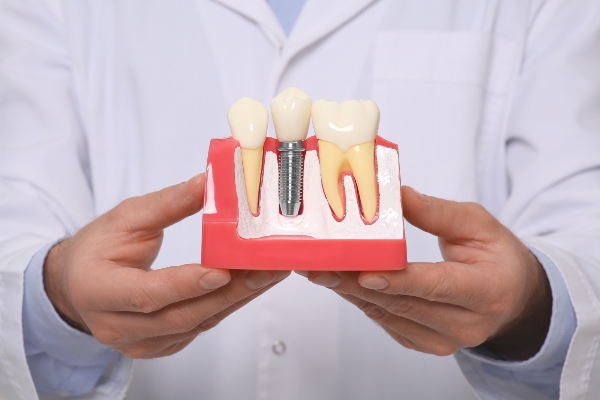A General Dentist Answers Questions About Oral Sedatives

When your general dentist says you need an oral sedative, you might have questions. There are many reasons why you might want or need an oral sedative. You may experience a lot of anxiety, or you may need a procedure that can cause discomfort. General dentists use several different kinds of oral sedatives to help patients. Each type has pros and cons, depending on the patient. Here are a few questions you may have for your general dentist about oral sedatives.
What do patients take an oral sedative for?
Many people experience severe anxiety when going to the dentist. This anxiety is so strong that some patients even avoid going to dental appointments. Oral sedatives can help a patient relax enough so the dentist can perform procedures. Other common procedures that the dentist may perform include placing fillings or crowns. When the dentist is working in the patient’s mouth, it can increase the patient’s anxiety. An oral sedative allows the patient to relax and not endanger themselves or the dentist.
What happens when a patient takes an oral sedative?
The oral sedative usually begins working quickly. Patients generally experience the effects of oral sedatives in the first two hours. But effects can linger for several hours afterward. Most patients feel very relaxed physically. Often, patients do not remember very much of what happened during the visit. The dental staff watches patients during the procedure, but patients usually do not have any trouble sitting still.
What other factors should patients consider?
Fortunately, oral sedatives are not very expensive and are easy to obtain from the general dentist. When a patient takes an oral sedative in preparation for a procedure, they do not need an anesthesiologist. Taking an oral sedative also works with many diseases and conditions that make other sedatives less effective. Patients should discuss their medical histories with the general dentist first. However, because oral sedatives are not given through an IV, it is not as easy to adjust dosage for patients.
When is an oral sedative not the right choice?
Some patients are allergic to specific medications, including oral sedatives. Patients also need to be forthcoming about any substance abuse that could affect the way that the oral sedative works. Other medical conditions could prevent a patient from using an oral sedative for a dental procedure. And some medications for bipolar disorder or depression mean that an oral sedative is a bad idea. Finally, patients need to have someone who can take them home after the office visit since an oral sedative can make it dangerous for a patient to drive.
How can the patient prepare for oral sedation?
Following the dentist’s instructions is important. The dental team will give the patient instructions before arriving at the clinic. The instructions will depend on the type of sedation the patient will have. For nitrous oxide, the dentist will ensure that the patient is under before the treatment starts. For oral conscious sedation, the dental team will tell the patient when to take the sedative.
Filing a sick leave or some time off is also necessary. The patient will be drowsy after the treatment. Going back to normal activities will not be possible for the rest of the day. The patient must stay put at home until the sedation fades.
Having someone to care for the patient is necessary. A friend or family member can be the caregiver for the day. The patient will not be able to drive home. Those who will have oral conscious sedation will take the pill before leaving the house. The caregiver will need to drive the patient to the clinic and back home. Children will need two responsible adults to accompany them.
What should the patient bring to the appointment?
Patients can bring anything that can relax or soothe them during the appointment. Music, pillows, and plushies can help. Some patients bring asthma inhalers, extra oxygen, and medications in case of emergencies. Someone should always be with the patient in case anxiety attacks happen.
What should the patient expect at home after the treatment?
The answer differs from person to person. Sleepiness can happen even when the patient reaches home. Other patients may experience alertness. Someone must still look after the patient until the sedative effects have faded. This often takes six to eight hours.
A general dentist’s goal is to provide a good experience
Your general dentist’s goal is to make you as comfortable as possible. When you have anxiety, it can make it difficult or impossible to get the dental care you need. An oral sedative can improve your experience and outcome. Talk to your dentist about any other concerns you may have.
Request an appointment here: https://www.riversdentistry.com or call Rivers Family Dentistry at (979) 710-2216 for an appointment in our Bryan office.
Check out what others are saying about our dental services on Yelp: General Dentist in Bryan, TX.
Related Posts
Rivers Family Dentistry is proud to be a premier dentist near Traditions and the surrounding 77807 area, serving the families who live, work, and play in one of Bryan’s most vibrant and prestigious communities. Whether you are spending a Saturday morning at the Traditions Club playing golf, enjoying the scenic trails near Lake Walk, or…
Looking for a dentist near me in Austin’s Colony? Rivers Family Dentistry has been a proud neighbor in the Bryan community for years, and we’re here to help you and your family smile with confidence. We love being part of this vibrant Bryan neighborhood, in 77808, located just a stone’s throw away from local landmarks…
A general dentist plays an essential role in maintaining lifelong oral health by providing preventive, restorative, and cosmetic care for patients of all ages. While specialists focus on particular aspects of dentistry, a general dentist provides a wide range of services to address routine needs and detect issues early. Understanding what distinguishes a general dentist…
You can see your general dentist if you want to renew your smile. There are specific treatments that can improve your teeth and gums. At the same time, your dental functions can be better as well. Here are the cosmetic dental services that your general dentist can provide.Crooked teeth can distort one’s smile. This problem…


